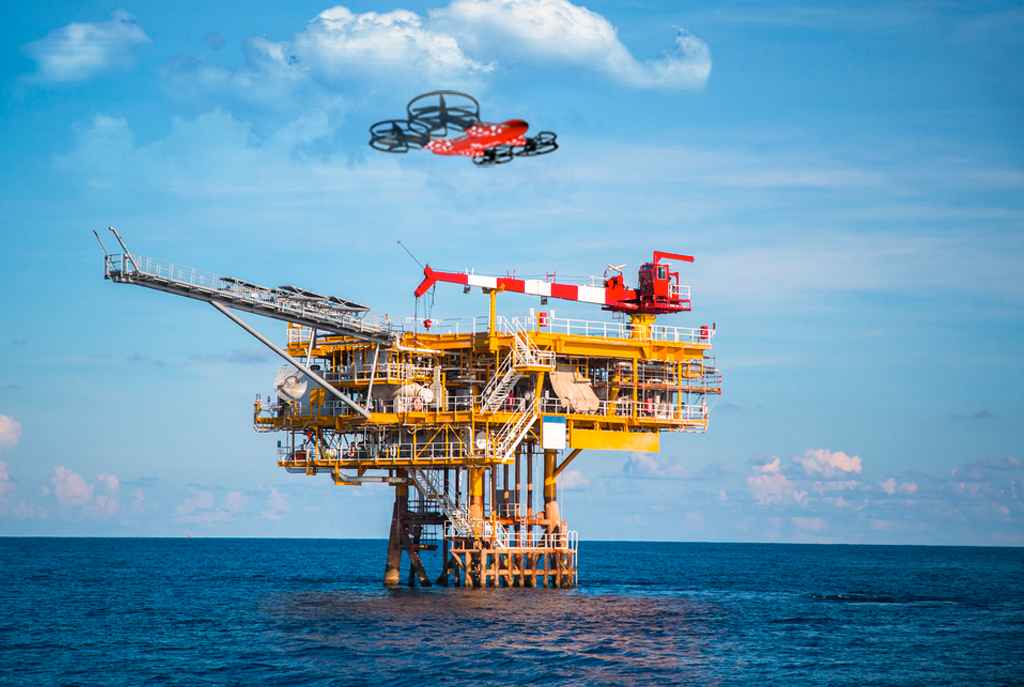Many industries embraced drone technology as it has developed, but the industry in which this adoption is perhaps most important and valuable is oil and gas. The oil and gas industry is especially hazardous for workers, so drone technology can help conduct day-to-day operations to minimize the human risk involved with the industry’s assets. The new capabilities that drones have are powerful and will allow companies to boost their productivity, making their emergency response more effective and prompt.
In the oil and gas industry, drones are particularly handy for monitoring and inspections. This aspect of operations can be dangerous for human workers because of the perilous situations they potentially have to expose themselves to and the disastrous consequences that could occur if these inspections aren’t conducted properly. The data collected by drones tends to be much more reliable because they can see more than the human eye.
The safety benefits of drones in this industry are innumerable. First and foremost, using drones prevents human workers from having to enter dangerous areas. Being able to conduct these inspections and monitoring remotely reduces the exposure that human workers have to hazards, of which there are many in the oil and gas industry. Additionally, the imaging capabilities of drones can detect when dangerous conditions may be present before a traditional worker would even know something is wrong.
Drone technology has improved significantly in recent years, making them substantially more maneuverable. Longer battery life means that drones can be used on more prolonged efforts, and better propellers allow the drone to enter tighter spaces. Drones are often able to reach places where human workers cannot go, which creates a much more detailed, comprehensive picture of the situation than there would be without their use.
The cameras and sensors used in drones have also developed substantially from when they were first introduced. HD cameras, thermal sensors, and multispectral sensors allow oil and gas companies to get the data and information they need during routine inspections and emergencies. This data is instrumental when responding to an emergency because it is necessary to analyze the situation as quickly as possible to take appropriate response.
Drone technology allows oil and gas workers to do this efficiently. Real-time imaging and quick data transmission will enable the situation to be analyzed immediately so that companies can deploy the necessary resources in response. As a result, companies can have robust damage control in place, protecting their equipment and employees while also minimizing the environmental impact that the incident may cause.
In oil and gas, durability is vital for any machinery because of the high temperatures and pressures to which it may be exposed. ZenaDrone’s drones are resistant to heat, wind, and occasional wear-and-tear that may occur while surveying disaster zones and industrial accidents. Durability is a crucial factor in the viability of any technology solution in this industry, and modern drone technology steps up to the challenge.
Companies can reduce their operational costs significantly by deploying drones. Traditionally, inspections and monitoring required teams of field technicians who would perform the work while also having an emergency response team on standby. Drone technology reduces the number of personnel needed by eliminating the need for field technicians. Instead, all that is needed are a drone operator and the people required to process the drone’s data. Oil and gas companies can reallocate their personnel and expenses elsewhere.
Drones can also be used to handle and deliver materials much more quickly. Although this may seem like a minimal part of operations, it’s quite helpful. There are various nodes that can be attached to the base drone to give them the ability to carry small and large loads between production platforms. Oil and gas are massive industries with significant production chains, and speeding up any part of the process can have an impact that stretches well beyond that one stage.
ZenaDrone works with oil and gas companies to develop the solutions that best fit the needs of their business. The technology they have at their disposal is versatile and allows companies to integrate drones into different aspects of their operations seamlessly. It will boost productivity, improve the safety of workers, and address any other needs of the company efficiently and effectively.
